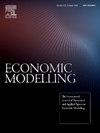从试点到同行:智能制造政策如何通过示范效应带动企业智能化转型
IF 4.7
2区 经济学
Q1 ECONOMICS
引用次数: 0
摘要
智能制造是提升中国制造能力的重大战略举措,跨行业跨区域有效实施智能制造仍是政策探索的重要领域。本文利用2009 - 2022年中国a股制造业企业数据,利用基于智能制造示范工程(IMDP)的准自然实验来检验政策的溢出效应。研究结果表明,IMDP试点企业显著推动了同一城市和行业内非试点企业的智能化转型。政策效应通过竞争压力、制度压力和学习溢出效应传播。此外,对非国有企业、拥有更多熟练工人的企业和融资约束较少的企业的影响更大。我们的研究结果表明,设计良好的试点政策可以产生超越目标企业的催化效应,从而促进整个制造业更广泛的技术升级。这些结果为决策者如何通过战略性示范和扩散机制放大产业政策的影响提供了宝贵的见解。本文章由计算机程序翻译,如有差异,请以英文原文为准。
From pilot to peers: How intelligent manufacturing policy drives corporate intelligent transformation through demonstration effects
Intelligent manufacturing is a key strategic initiative for advancing China's manufacturing capabilities, and its effective implementation across industries and regions remains an important area of policy exploration. Using data on Chinese A-share manufacturing firms from 2009 to 2022, we exploit a quasi-natural experiment based on the Intelligent Manufacturing Demonstration Project (IMDP) to examine the policy's spillover effects. Our results show that IMDP pilot firms significantly drive intelligent transformation among non-pilot firms in the same city and industry. The policy effects propagate through competitive pressure, institutional pressure, and learning spillovers. Moreover, the impact is stronger for non-state-owned firms, firms with more skilled workers, and those with fewer financing constraints. Our findings suggest that well-designed pilot policies can create catalytic effects that extend beyond targeted firms, thereby promoting broader technological upgrading across the manufacturing sector. These results provide valuable insights into how policymakers can amplify the impact of industrial policies through strategic demonstration and diffusion mechanisms.
求助全文
通过发布文献求助,成功后即可免费获取论文全文。
去求助
来源期刊

Economic Modelling
ECONOMICS-
CiteScore
8.00
自引率
10.60%
发文量
295
期刊介绍:
Economic Modelling fills a major gap in the economics literature, providing a single source of both theoretical and applied papers on economic modelling. The journal prime objective is to provide an international review of the state-of-the-art in economic modelling. Economic Modelling publishes the complete versions of many large-scale models of industrially advanced economies which have been developed for policy analysis. Examples are the Bank of England Model and the US Federal Reserve Board Model which had hitherto been unpublished. As individual models are revised and updated, the journal publishes subsequent papers dealing with these revisions, so keeping its readers as up to date as possible.
 求助内容:
求助内容: 应助结果提醒方式:
应助结果提醒方式:


